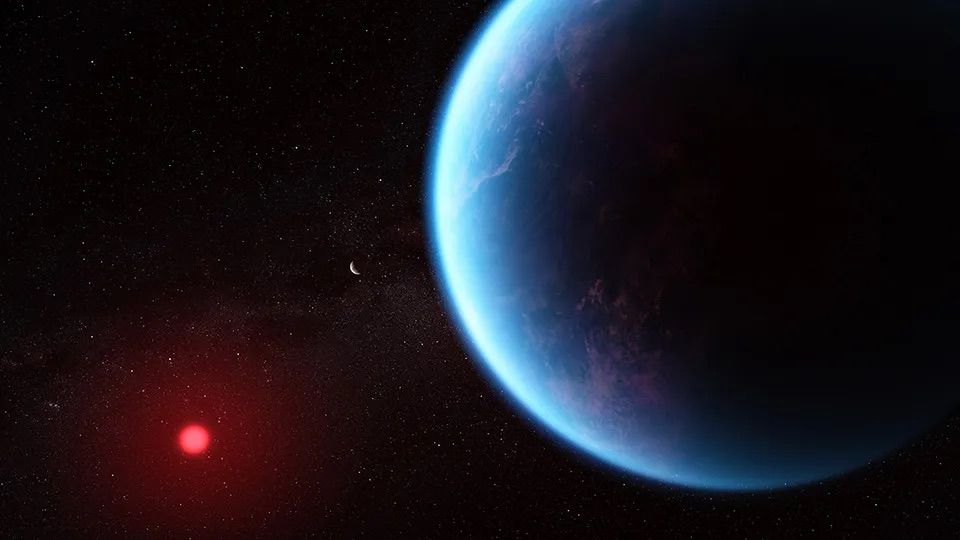K2-18b, a fascinating super-Earth exoplanet, orbits a cool M-type star about 124 light-years from Earth. With a mass about 8.92 times that of Earth, K2-18b is an interesting scientific target. Its orbital period is brief, at just 32.9 days, and orbits its star at a close distance of roughly 0.1429 AU. Although it is near the host star, K2-18b’s conditions may be capable of supporting liquid water, a vital ingredient for life as we know it.
We have been aware of this exoplanet since 2015, but recent discoveries have renewed interest in its atmospheric composition. An unwavering group of scientists from Cambridge University has analyzed the climate on K2-18 b and has broken records with the powerful James Webb Space Telescope (JWST). With awe-inspiring discovery, they detected signs generally found to correspond with biological presence in our Earth environment, signaling the incredible promise of the potential presence of life here on a different planet. These findings demonstrate the presence of molecules, such as water vapor, methane, and carbon dioxide, that collectively might be evidence for the presence of living organisms or biologically-alike activity.
This stellar finding is the second time NASA’s JWST has picked up possible biosignatures in K2-18 b’s atmosphere. The fact that it has been detected twice lends more validity and a thrill for scientists. However, the Cambridge research team, led by Professor Nikku Madhusudan, does admit that further work and data collection are needed to confirm whether or not the chemical indications do imply life.
In a recent press conference at Cambridge University’s Institute of Astronomy, Professor Madhusudan detailed what this study means. He described, “This is the strongest evidence yet that there is possibly life out there. I can realistically forecast that we can confirm this sign in one or two years.” Such optimism shows growing confidence that advances in technology and analysis will soon yield the conclusive evidence required to answer one of the world’s most basic questions: Do we alone inhabit the universe?
As researchers continue to research K2-18 b and other exoplanets, every new finding provides valuable information about the conditions that may support life elsewhere in the universe. The impacts of discovering life on K2-18 b would not only change our perspective on the universe but also motivate a new generation of astronomers and astrobiologists to venture into the universe in search of our cosmic neighbors.
Sources –






















